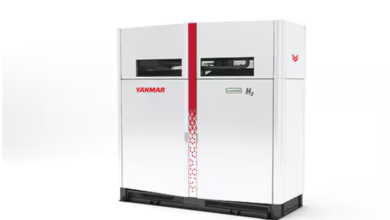Startup participants for the Low-Carbon Hydrogen Accelerator (LCHA) programme
The Low Carbon Hydrogen Accelerator is the latest of several impactful climate accelerators created by UFL and Greentown Labs with a host of excellent corporate or research entities.

The Electric Power Research Institute (EPRI), Shell, the City of Houston, Greentown Labs, and the Urban Future Lab (UFL) at the NYU Tandon School of Engineering announced seven startup participants for the Low-Carbon Hydrogen Accelerator (LCHA).
LCHA is a Greentown Go program designed to support solutions across low-carbon hydrogen production, storage, and distribution. This six-month, highly structured accelerator program offers startup participants collaboration and engagement opportunities with EPRI, its member utilities, and Shell on technology validation, feasibility studies, paid pilot demonstrations, and other development and commercial partnerships.
LCHA received 88 applications from 18 countries, representing numerous innovations that are advancing low-carbon hydrogen production, enhancing hydrogen storage and distribution, and providing business model innovations for the management of hydrogen supply chains. The following seven companies were chosen:
- Advanced Ionics (Milwaukee, WI) is enabling green hydrogen production without the green premium.
- Arco Technologies (Bologna, Italy) is developing a proprietary Anion Exchange Membrane electrolyzer with the lowest capital expenditures and operating expenses possible today.
- Clean Power (Greater Manchester, United Kingdom) is developing a novel, low-cost, highly durable hydrogen polymer electrolyte membrane (PEM) fuel cell delivering zero-emission electricity.
- Element Resources (Houston, TX) is enabling compressed hydrogen storage tank technology.
- Smartpipe Technologies (Houston, TX) is developing a robust self-monitored, repurposed pipeline system for hydrogen with minimal environmental disruption.
- SPEC Sensors (Newark, CA) is creating a robust and reliable meshed sensor network for hydrogen leak detection and line-monitoring systems.
- RUNWITHIT Synthetics (Alberta, Canada) is creating a live, digital twin modelling platform that generates decision-support data for regional hydrogen-demand scenarios.
EPRI and Shell will provide the startup participants with two main pathways for engagement: a technology validation track and a technology demonstration track. As an industry-leading research, development, and demonstration organization, EPRI can support startups in their technology development and deployment. This program builds on EPRI’s low-carbon efforts.
